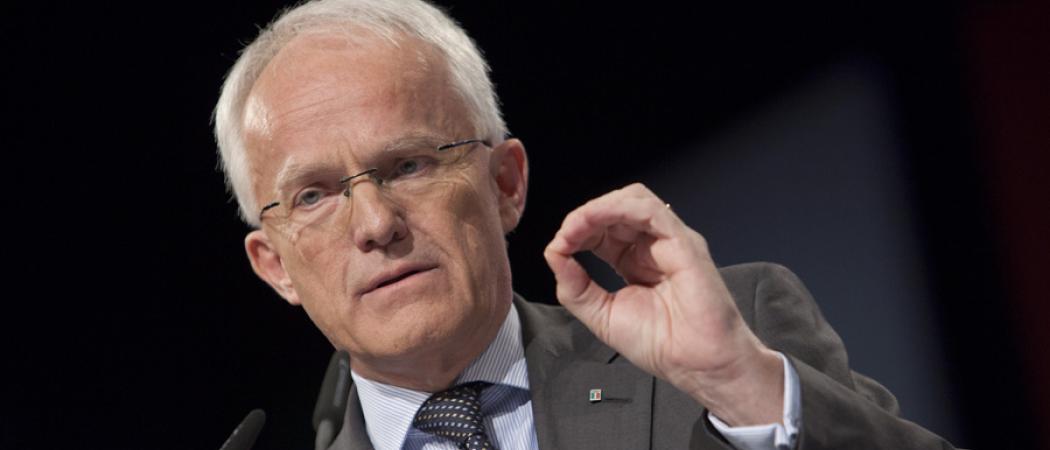Advisor lays out plan for how Europe can strengthen manufacturing base and keep pace with rivals in ‘key enabling technologies’

Photo: http://www.juergen-ruettgers.de
The European Commission needs to boost investment in artificial intelligence and cybersecurity research if it wants to compete in a new technology race with the US and China.
This is the view of Jürgen Rüttgers, former science and technology minister in Germany, who heads an advisory group reporting to the Commission. Their work, developed by Rüttgers with 13 other figures drawn across research, industry and finance and to be published 23 February, looks at expanding industrial research in Framework Programme 9, the EU’s next research and innovation programme, set to start in 2021.
In an interview, Rüttgers argues that artificial intelligence should get extra EU attention. “We are very strong in [the AI] field, and we don’t always see that we are strong,” he said. But the global balance of power in technology is shifting. After the US, it is China, notably, that is seen to be investing huge amounts in AI, with the ambition to become a world leader in AI by 2025.
“China is very strong and is making a serious effort. But I don’t believe it is impossible for Europe [to match it],” said Rüttgers, who served in former Chancellor Helmut Kohl's cabinet from 1994 to 1998.
He says the group is urging extra effort – as part of the Commission’s Key Enabling Technologies programme – on developing new “security and connectivity” technologies for industry. This would include more protection from hacking or privacy violations even as industry connects more and more of its factories, products and services online. That’s important politically, as well as industrially, he says. “We want the KETs to be a real growth from the base of our democracy, our European values, and our view of our way of life here in Europe.”
Key enabling technologies
The group’s work is one of several the Commission has ordered up from select groups of expert advisors, as it plans FP9. Other groups have been studying the EU’s innovation support for fast-growing small companies, for private-public financing mechanisms, for fundamental science and the economics of research and innovation. These reports, now trickling out into the public domain, are a run-up to the Commission’s publication by the end of May of its long-term budget plans.
Rüttgers’ faith in European ingenuity is linked to the emergence of a strong manufacturing base, which accounts for 16 per cent of the continent’s GDP, and a feeling that policymakers have already successfully identified some of the most important underlying technologies of the future.
Today, the six foundational technologies prioritised under the EU’s Horizon 2020 research programme are micro and nanoelectronics; nanotechnology; industrial biotechnology; advanced materials; photonics; and advanced manufacturing technologies.
Investment in these fields, which the Commission expects will pay off in the form of more skilled, high-paying jobs, is €6.6 billion, or 8.5 per cent of the seven-year Horizon 2020 budget, which ends in 2020.
Generally speaking, the EU in its current KETs programme, begun in 2009, “has identified the correct fields to invest in”, Rüttgers said. They reflect views that Europe must invest more in industrial technologies – not just for industry, but for society generally. “The knowledge society means knowledge will be a new resource, with labour, land and capital – a new production value.” But, he says the advisory group asked itself, of the six KETs chosen in 2009, “are they the right KETs for our time? The right KETs for the future?” The group’s conclusion: yes, but “better to focus on some new ideas” as well.
Hence, he says the Commission should add separate funding lines for artificial intelligence and security/connectivity. He also urges broadening the existing biotechnology KET to include life sciences technologies, rather than industrial biotech alone.
The group’s report will be published 23 February at a Brussels conference organised by the Commission.





 A unique international forum for public research organisations and companies to connect their external engagement with strategic interests around their R&D system.
A unique international forum for public research organisations and companies to connect their external engagement with strategic interests around their R&D system.